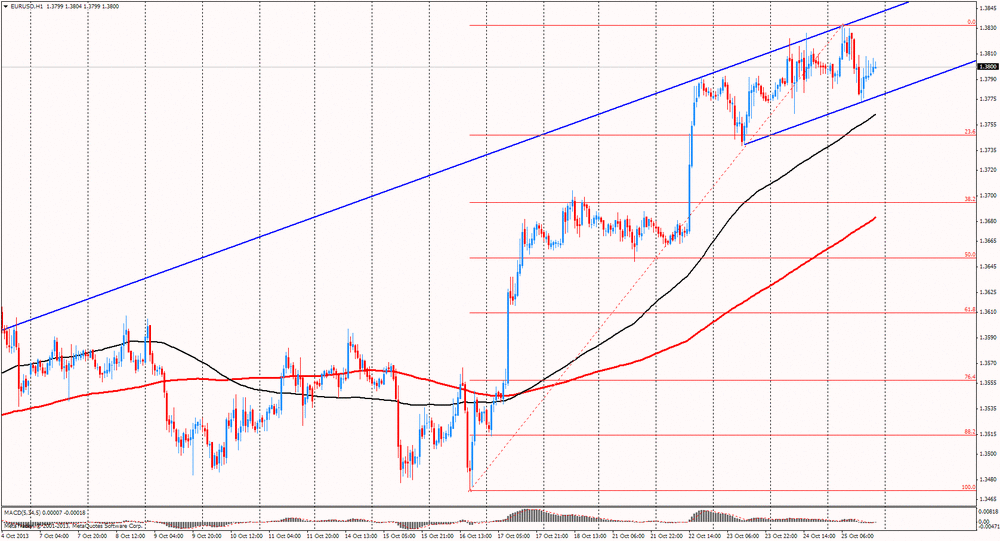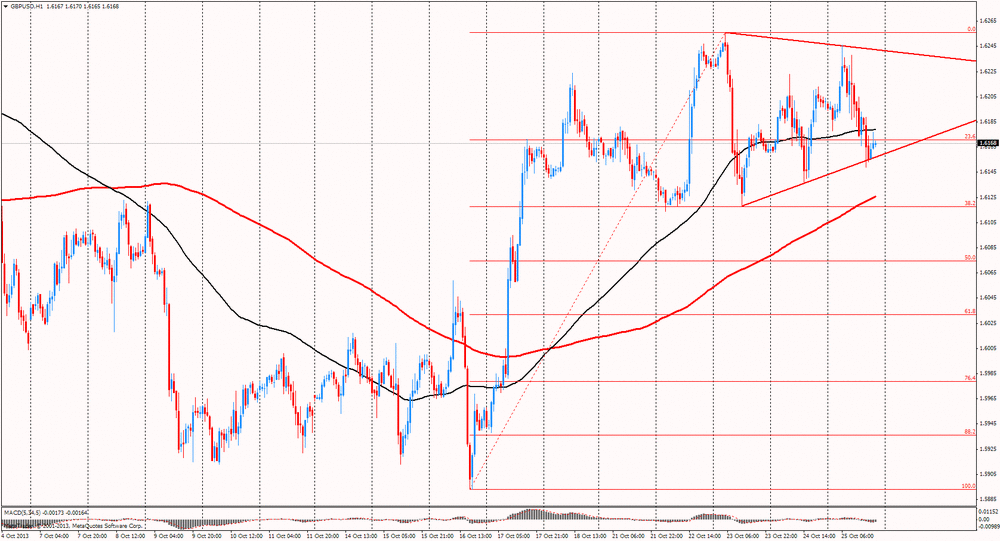- American focus : the pound declined significantly against the dollar
Market news
American focus : the pound declined significantly against the dollar
The dollar recovered slightly against the euro, while returning to the levels of the opening of today's session. Note that the growth of the U.S. currency have helped the data , which showed that in September orders for expensive U.S. goods rose by 3.7% , mainly due to the increasing demand for jets , but business investment outside the transport sector declined.
Economists had expected an increase in orders to a seasonally adjusted total 1.7 % , helped by a sharp increase in the number of signed contracts for orders Boeing Inc. Airline, which soared 57.5% after rising by only 5.4 % in the previous month. Orders for durable goods excluding transportation fell by 0.1 %. Orders for core capital goods fell by 1.1 %. This is the second drop in three months. Deliveries of major means of production , a figure that used to help determine how fast the economy is growing every quarter , fell 0.2 % in September. Orders for durable goods in August was revised upward to 0.2 %. For the first nine months of 2013 , orders for durable goods rose 3 % compared with the same period a year earlier.
The pound fell markedly against the dollar, losing the all the items received in anticipation of the report by Britain's GDP . In its preliminary assessment of the Office of National Statistics said gross domestic product grew by 0.8 % in July - September compared with the second quarter, when it increased by 0.7 %, showing the strongest growth since the second quarter of 2010 , when the economy expanded by 1.0 %. Production volume rose by 1.5 % compared to the third quarter of 2012. The figures in line with forecasts of economists. Year- on-year GDP growth this year could reach 3.2%. But despite the rapid growth , the data show that the UK economy is still below the levels of five years ago, when the financial crisis hit .
According to Trevor Graham , an analyst Fidelity Worldwide Investment, " Britain's GDP is restored, and in the 4th quarter , he may be even higher , according to the outgoing data. Recovery takes place against the background of the housing market , however, any growth is better than none , as it can lower the deficit , as well as to encourage companies to invest in new equipment . "

